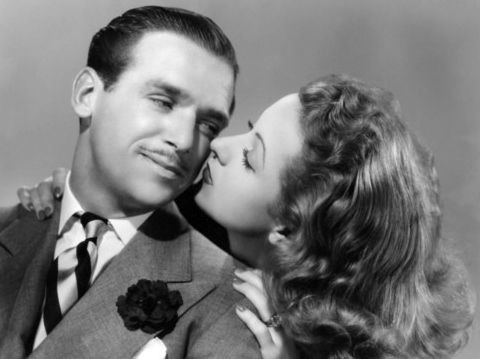The characters played by Douglas Fairbanks, Jr. are frequently described as “dashing” or “swashbuckling.” What most people don’t realize is that he was equally so in real life.
In the late 1930s, Fairbanks had been active in the William Allen White Committee lobbying for U.S. entry into the war, so it was no surprise that he was ready and willing to serve. As he was already a movie star, Fairbanks could have spent the war years in film. Instead, he chose to be commissioned as a reserve officer in the U.S. Navy six months before the Japanese attack on Pearl Harbor.
A committed Anglophile, Fairbanks was assigned to an officer exchange program under British Admiral Lord Louis Mountbatten’s Commando staff in the United Kingdom. Fairbanks became deeply skilled in the art of military deception while participating in British training and cross-channel operations with the Royal Navy. He studied at the HMS Tormentor Advanced Training and Amphibious Operations Base and at the Commando Training School in Scotland.
Upon being transferred back to Virginia Beach, Fairbanks was under the command of Admiral H. Kent Hewitt and about to invade North Africa. He was instrumental in Admiral Ernest King recruiting men for the Beach Jumper program, begun in 1943, which would simulate amphibious landings away from the actual landing beaches, causing the enemy to believe that theirs was the principal landing spot.
Fairbanks was assigned to develop, supervise, and coordinate all plans with the British, and is credited with bringing special tactical deception to the United States Navy. Beach Jumper was successful at Sicily, Salerno, Southern France, and the Philippines.
For his planning and participation, Lieutenant Commander Fairbanks was awarded the Navy’s Legion of Merit with bronze V for Valor, the Italian War Cross for Military Valor, the French Legion d’honneur, the French Croix de Guerre with Palm, and the British Distinguished Service Cross, the Silver Star for valor, and the National Order of the Southern Cross. This is very impressive for any military service member and, in 1949, Fairbanks was made Honorary Knight Commander of the Order of the British Empire.
However, his career did not end with the war. He stayed with the Naval Reserve and retired as a captain in 1954. In 1990, he spoke with a journalist about the death threats his family received after he formed the White Committee.
“Why did I do it? I can only describe it with words that are considered rather corny these days: conviction, conscience, doing what I thought was right, the hell with the results.”

COMMENTS
Please let us know if you're having issues with commenting.